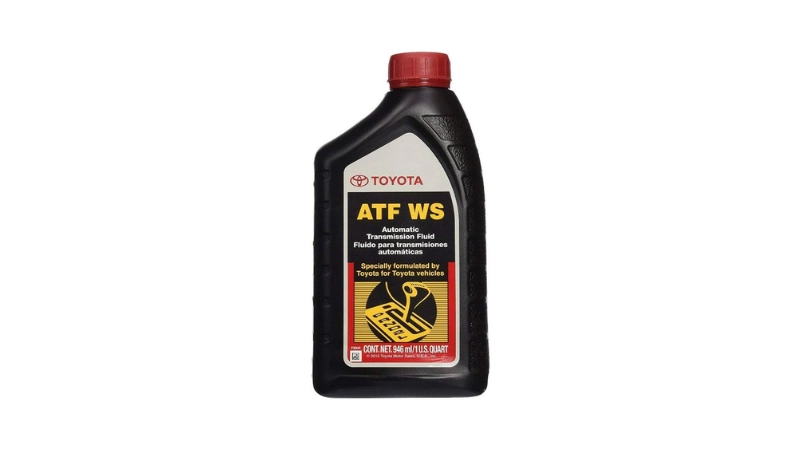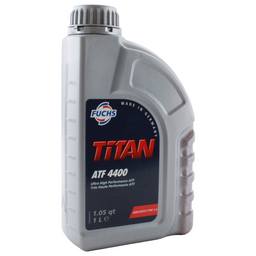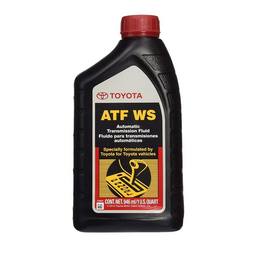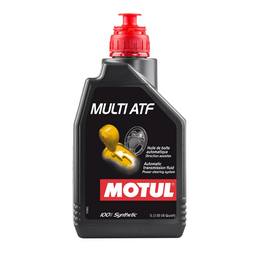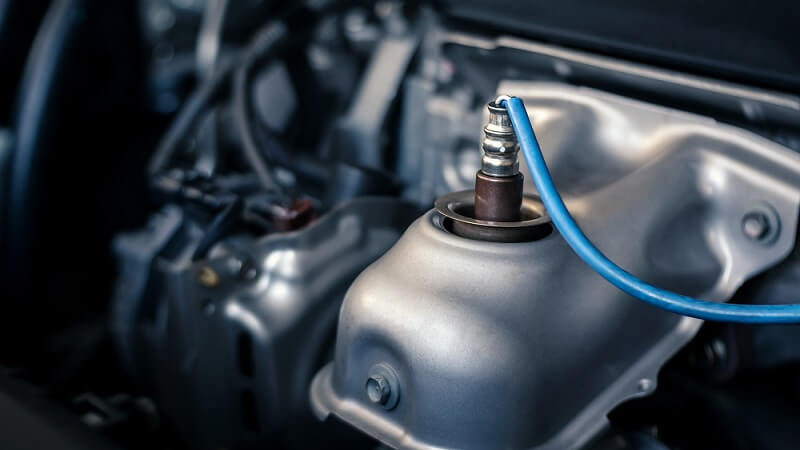The Toyota Camry has long been celebrated for its reliability, comfort, and longevity, making it a favorite among car owners worldwide. However, like all vehicles, the Camry is not immune to mechanical issues, and transmission problems are among the most concerning.
Understanding transmission issues is essential for maintaining the performance and longevity of the Toyota Camry, ensuring safety on the road. Whether you are experiencing unusual noises, slipping gears, or a delay in shifting, these issues can escalate if not addressed on time.
But fear not; this blog post explains common Toyota Camry transmission problems, potential causes, diagnostic steps, solutions, and fixes. It also provides maintenance tips to keep the transmission running smoothly.
Whether you are a seasoned Camry owner or a newbie looking for a reliable sedan such as the Camry, this guide aims to provide valuable insights to help you keep your Camry running smoothly and reliably.
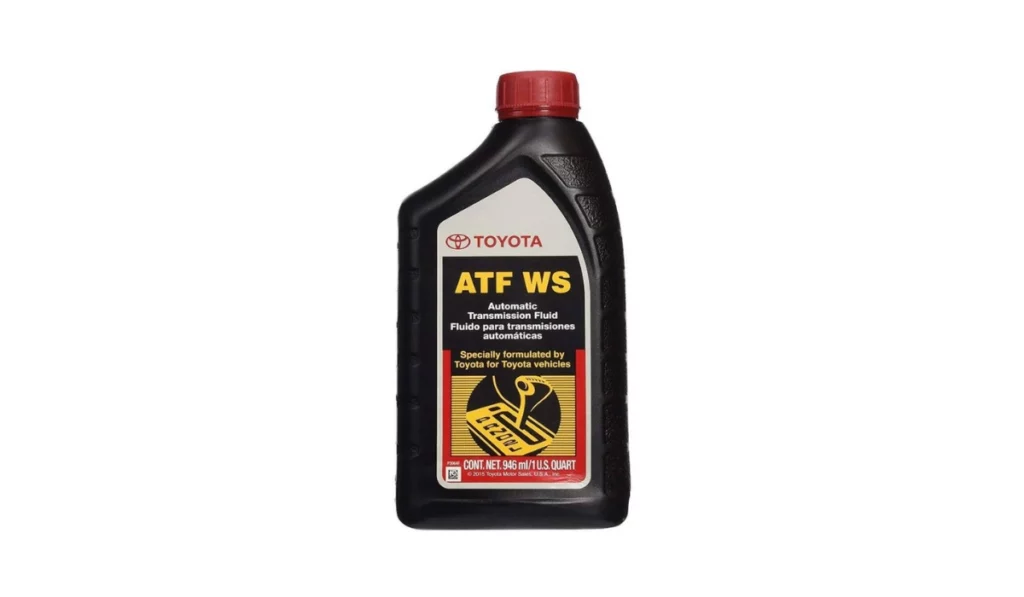
Toyota Camry: A Road To The Best-Selling Sedan in the US!
The Toyota Camry, introduced in 1982, quickly became a big name in the automotive industry thanks to its unmatched reliability, promising comfort, and great efficiency. Initially launched as a compact car, it evolved into a midsize sedan, aligning with consumer preferences for larger, more spacious vehicles. This helped the Camry maintain its position as one of the best-selling cars globally, with millions of units sold over the decades.
One of the key factors behind the Camry’s success is its consistent performance and value. Toyota designed the Camry with durability in mind, favoring families, commuters, and professionals. The car’s engineering highlights low maintenance costs and long-term reliability, further solidifying its appeal.
The Camry has also benefited from Toyota’s continuous innovation and commitment to quality. Each new generation introduces improved safety, technology, and fuel efficiency, keeping the model competitive in an ever-evolving market.
Moreover, the Camry’s strong resale value and comprehensive warranty coverage add to its attractiveness. Buyers know they are investing in a vehicle that will provide dependable service for years. This reputation for reliability is particularly evident in the Camry’s powertrain, designed to withstand extensive use with minimal issues.
Toyota Camry Transmission Evolution
At its core, a transmission is a device that transfers power from the engine to the wheels, allowing the vehicle to move. It provides different gear ratios to adjust the engine’s rotational speed and torque, enabling efficient operation across varying driving conditions and speeds.
Over its various model years and generations, the Toyota Camry has been equipped with several types of transmissions, such as manual, automatic, and eCVT (Electronic Continuously Variable Transmission).
While the manual transmission (MT) provides direct control and a more engaging driving experience, the automatic transmission (AT) offers convenience and ease of use. The electronic continuously variable transmission (eCVT) seamlessly adjusts and offers optimal power and efficiency without fixed gear ratios. Here is a more detailed overview of these transmission types used in the Toyota Camry:
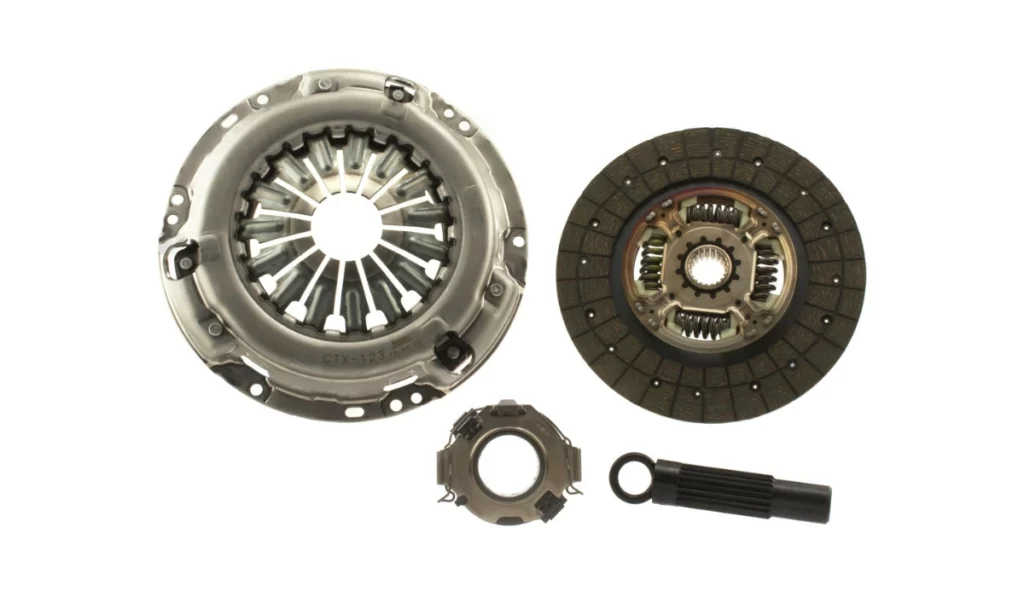
Manual Transmissions
A manual transmission (MT) requires the driver to manually select gears using a clutch and gear stick, offering greater control and a more engaging driving experience. It was commonly used in Toyota Camry from the first generation (1983 – 1986 ) to the sixth generation (2007 – 2011).
It has become rare in the latest generations as automatic and electronic continuously variable transmissions gained popularity for their convenience and efficiency. A manual transmission provides better fuel economy and performance in certain driving conditions.
Automatic Transmissions
An automatic transmission (AT) shifts gears automatically based on driving conditions, providing convenience and ease of use. It was available in Toyota Camry models from the first generation (1982 – 1986) to the eighth generation (2018 – present), offering smooth and efficient power delivery.
The automatic transmission allows for a relaxed driving experience, especially in stop-and-go traffic. It has evolved to include advanced features like adaptive shifting, increasing fuel efficiency in newer models.
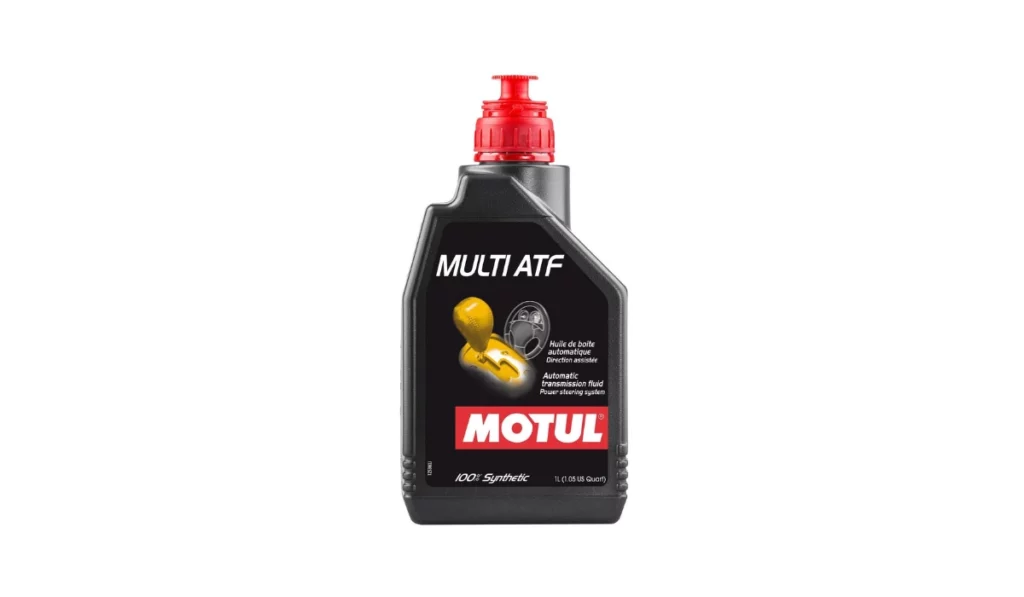
Electronic Continuously Variable Transmission (eCVT)
The electronic continuously variable transmission (eCVT) seamlessly adjusts to provide optimal power and efficiency without fixed gear ratios. Primarily used in Toyota Camry hybrid models from the mid-2000s onward, the eCVT enhances fuel economy and smooth acceleration.
It works by continuously varying the transmission ratio, ensuring the engine operates at its most efficient RPM. This transmission is integral to the hybrid system, maximizing performance while minimizing fuel consumption and emissions.
What is the lifespan of CVT transmission?
The lifespan of a CVT (continuously variable transmission) can vary depending on factors such as maintenance, driving habits, and the specific make and model of the vehicle. The new cars with CVTs can be expected to provide reliable operation up to about 100,000 to 160,000 miles, with some achieving up to 200,000 trouble-free miles with proper care and maintenance
Get Genuine Toyota parts at Discounted Rates
Welcome to Newparts.com, the epitome of excellence for Toyota owners seeking genuine Toyota and OEM parts at unbeatable prices. We’re not just another run-of-the-mill online car parts store; we’re trailblazers, revolutionizing the automotive maintenance scene with our unwavering commitment to innovation.
Our mission? Empowering every Toyota enthusiast with unparalleled access to premium parts without the premium price tag. Driven by our dedication to quality, we meticulously curate each product to ensure it meets your Toyota’s exacting standards.
Renowned as the ultimate destination for discerning Toyota aficionados, we take immense pride in being the go-to choice for savvy buyers who demand authenticity and value in every automotive purchase.
If you’re ready to embark on a journey of automotive excellence without breaking the bank, Newparts.com is your destination. Welcome to a new era of automotive innovation.
Common Issues on Toyota Camry Transmission
2002-2006 Toyota Camry
5-speed automatic (U151E)
Delayed/Sluggish Shifting
Symptoms — Hesitation to accelerate, delayed engagement when shifting into drive or reverse.
Causes — This can be due to various factors, including issues with the transmission control module (TCM) not communicating properly with the engine’s variable valve timing, leading to sluggish or erratic shifting behavior.
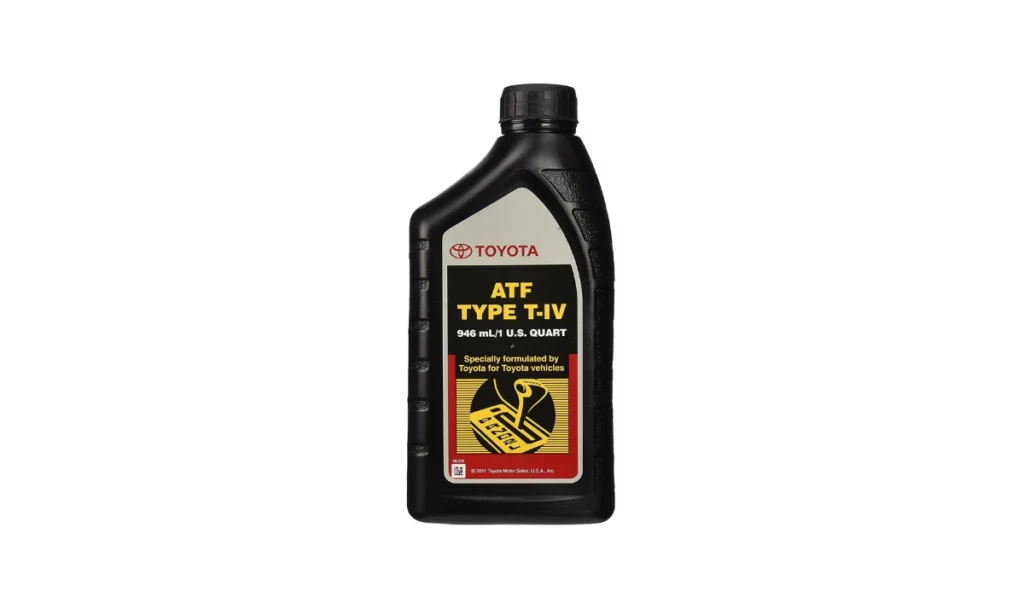
Harsh Shifting
Symptoms — Harsh or rough shifts, particularly between 2nd and 3rd gears, or 3rd and 4th gears.
Causes — Problems often stem from wear and tear on the valve body, which controls the flow of hydraulic fluid in the transmission. Incorrect or deteriorated transmission fluid can also exacerbate these issues.
Shuddering or Jerking
Symptoms — Shuddering or jerking when accelerating, often at low speeds or light throttle.
Causes — This is commonly linked to torque converter problems. The torque converter clutch might be failing, or there could be issues with the transmission fluid or solenoids within the transmission.
Electronic Control Issues
Symptoms — Transmission may enter “limp mode,” limiting itself to a single gear.
Causes — Problems with the TCM or its software can cause the transmission to shift incorrectly, sometimes requiring reprogramming or replacement of the TCM.
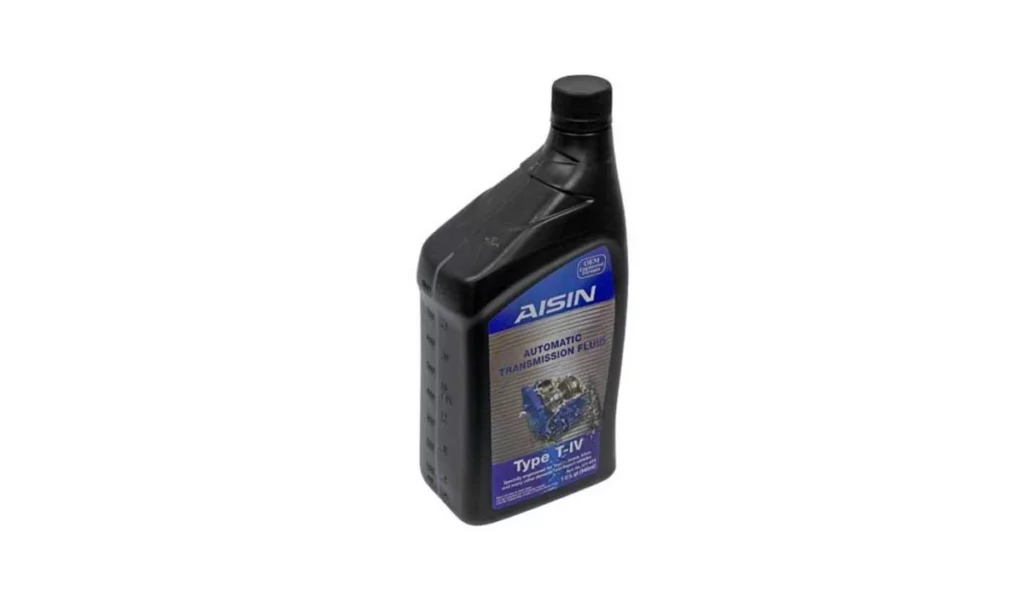
Mechanical Failures
Symptoms — General transmission failures, including the inability to engage gears.
Causes — This can be due to internal mechanical issues such as worn clutches, bands, or planetary gear sets, which often necessitate significant repairs or transmission replacement.
2007-2011 Toyota Camry
6-speed automatic (U660E)
Torque Converter Shudder
Symptoms — Shuddering sensation between 25-50 mph under light throttle.
Cause — Often caused by incorrect or deteriorated Automatic Transmission Fluid (ATF). The torque converter itself may also be failing.
Harsh Coasting Downshift
Symptoms — Harsh downshifts when decelerating.
Causes — This can be due to a dirty mass airflow (MAF) sensor or throttle body issues, which affect the smoothness of downshifts.
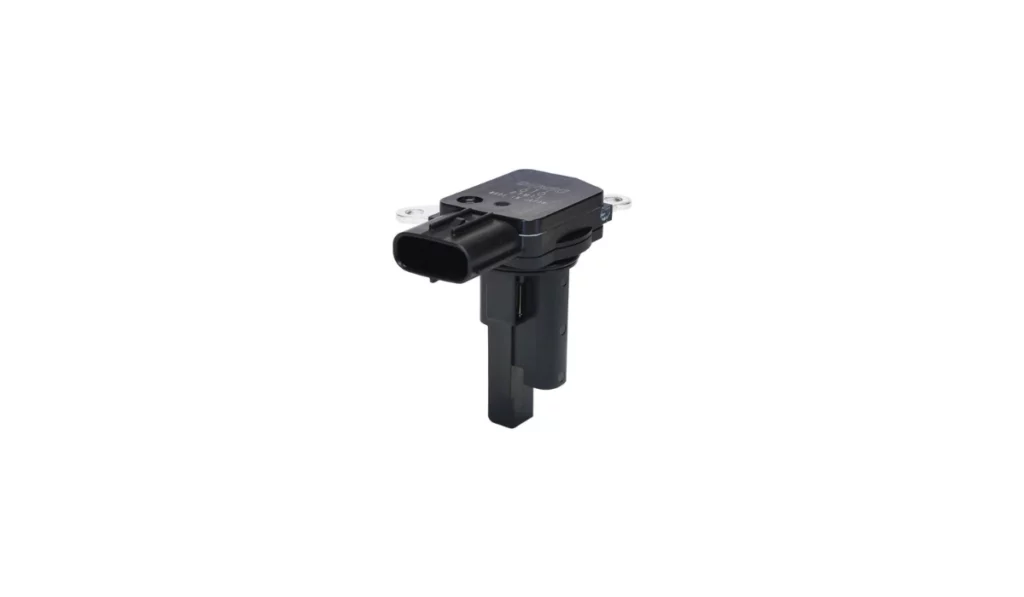
Valve Body Wear
Symptoms — Erratic shifting behavior and transmission slippage.
Causes — Wear on critical solenoid valves within the valve body, including the primary pressure regulator, lock-up control, and solenoid modulator valves, which manage hydraulic pressure in the transmission.
Case Bearing Bore Wear
Symptoms — Internal transmission noise and possible mechanical failures.
Causes — High torque loads can cause wear on internal bearing bushings, leading to further internal damage if not addressed.
TCM Failures
Symptoms — Transmission enters “limp mode” or shifts erratically.
Causes — Electronic control issues are often related to circuit performance, sometimes requiring TCM replacement or reprogramming.
2012-2017 Toyota Camry
6-speed automatic (U760E)
Torque Converter Shudder
Symptoms — Shuddering or vibration between 25-50 mph under light throttle.
Causes — This issue is often caused by the torque converter clutch applying incorrectly due to deteriorated or incorrect transmission fluid. Toyota addressed this with a torque converter warranty extension for affected models.
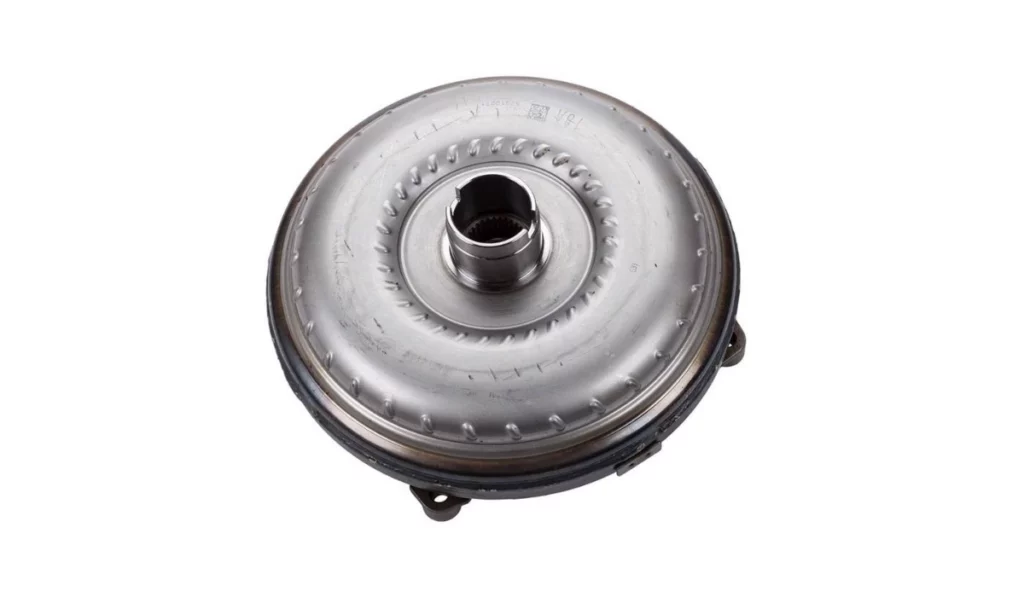
Harsh or Erratic Shifting
Symptoms — Harsh or flaring shifts, especially noticeable during acceleration.
Causes — This can result from improper fluid levels, worn valve body components, or issues with the solenoids. Regular maintenance with the correct fluid is crucial to mitigate these issues.
Valve Body Wear
Symptoms — Erratic shifting behavior and delayed gear engagement.
Causes — Wear on the valve body can lead to hydraulic pressure control issues. This is particularly problematic for the primary pressure regulator, lock-up control, and solenoid modulator valves. Replacement with updated or aftermarket components can alleviate these problems.
Engine Control Unit (ECU) Issues
Symptoms — Transmission enters “limp mode” or displays erratic shifting patterns.
Causes — The ECU may develop faults that impact its communication with the transmission control module (TCM), leading to transmission performance issues. Reprogramming or replacing the ECU can often resolve these issues.
Mechanical Failures
Symptoms — Inability to engage gears, slipping, or unusual noises from the transmission.
Causes — High torque loads and internal wear can lead to mechanical failures within the transmission. Regular maintenance and sensible driving habits can help delay these issues, but significant repairs may eventually be necessary.
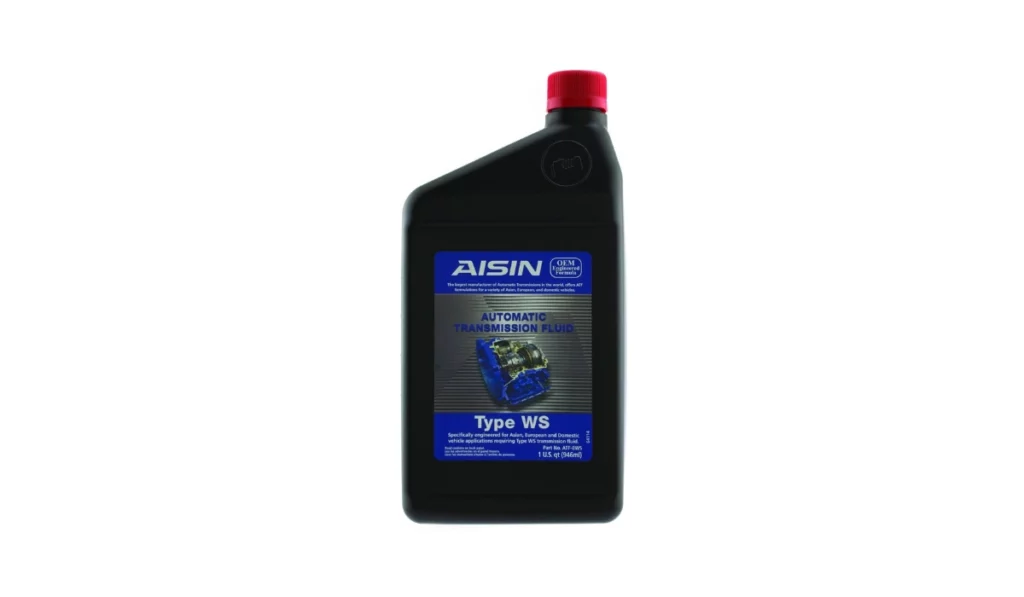
eCVT (Hybrid) (P314)
Hesitation and Delayed Engagement
Symptoms — Drivers experience a delay or hesitation when accelerating, which can be particularly noticeable when transitioning from a stop or attempting to increase speed quickly.
Causes — These issues often stem from software glitches within the transmission control module (TCM) that affect how the transmission and engine communicate. Software updates have been known to resolve these issues in many cases.
Shuddering or Jerking
Symptoms — Some users report shuddering or jerking sensations, especially at low speeds or during light throttle application.
Causes — This can be due to problems with the CVT fluid. Ensuring the correct type and CVT fluid level can help mitigate these issues.
Electronic Control Issues
Symptoms — Problems with the vehicle speed control, where the car either fails to accelerate properly or accelerates unexpectedly.
Causes — These issues are sometimes linked to software faults in the electronic throttle control system, which can cause unpredictable acceleration behavior.
Rodent Damage
Symptoms — Malfunctions in the electrical system due to chewed wiring.
Causes — The use of soy-based wiring in many hybrid models attracts rodents, leading to chewed wires and electrical issues. This is common across many vehicles, not just Toyota Camry hybrids.
2018-Present Toyota Camry
8-speed Direct Shift ECT-i automatic (UA80E, UB80E/F)
Harsh or Delayed Shifting
Symptoms — Owners report harsh, delayed, or abrupt gear shifts, particularly noticeable at low speeds or during acceleration.
Causes — These issues are often related to software problems in the transmission control module (TCM). Toyota has released several Technical Service Bulletins (TSBs) to update the software to improve shift quality. Some reports suggest that these problems may also be due to mechanical issues within the transmission itself.
Hesitation and Surging
Symptoms — Drivers experience hesitation or surging when accelerating, especially at low speeds or in stop-and-go traffic.
Causes — This can be attributed to the transmission shifting to neutral between gears, causing a lag and subsequent jerking when the transmission re-engages. This behavior might be a fundamental design flaw, making it difficult to rectify with software updates alone completely.
Erratic Throttle Response
Symptoms — Erratic responses when applying the throttle, including stumbling or lurching, can be unsettling for drivers.
Causes — This is often due to the adaptive logic of the transmission not functioning as intended. While software updates have been provided to address these issues, the effectiveness of these fixes has been mixed. Some owners report improvements, while others continue to experience problems.
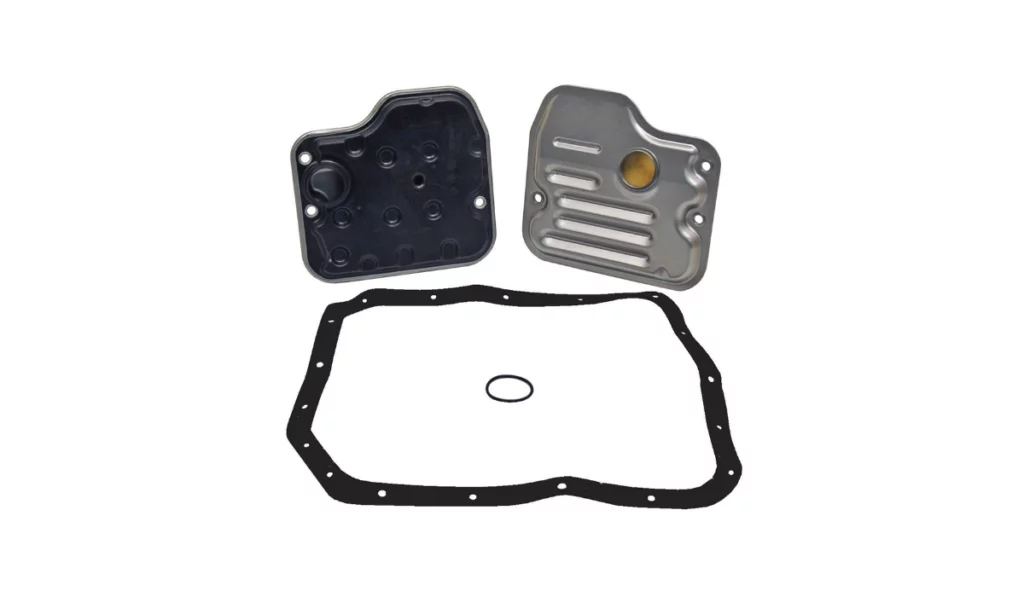
Excessive RPMs Before Upshift
Symptoms — The engine revs excessively before the transmission shifts to the next gear, leading to a noisy and uncomfortable driving experience.
Causes — This issue is related to the transmission’s programming, which may cause it to hold gears longer than necessary. Toyota has addressed this in part through software updates to optimize shift points.
Jerking and Bucking
Symptoms — Sudden jerking or bucking when the vehicle shifts gears or under light throttle applications.
Causes — These symptoms are often caused by the transmission struggling to determine the appropriate gear, potentially due to software or mechanical inconsistencies within the transmission system.
How long does a Toyota Camry transmission last?
The lifespan of a Toyota Camry transmission can vary depending on several factors, including maintenance, driving habits, and environmental conditions. On average, a well-maintained transmission can last 200,000 miles, if not more.
Diagnosing Toyota Camry Transmission Problems
Diagnosing transmission issues in your Toyota Camry requires a systematic approach and careful observation of symptoms. Here are the steps to diagnose transmission problems effectively:
Test Drive the Vehicle
Take the vehicle for a test drive to observe how the transmission behaves under different driving conditions. Pay attention to symptoms such as slipping gears, delayed engagement, rough shifting, or unusual noises. Note any specific driving scenarios in which the symptoms occur.
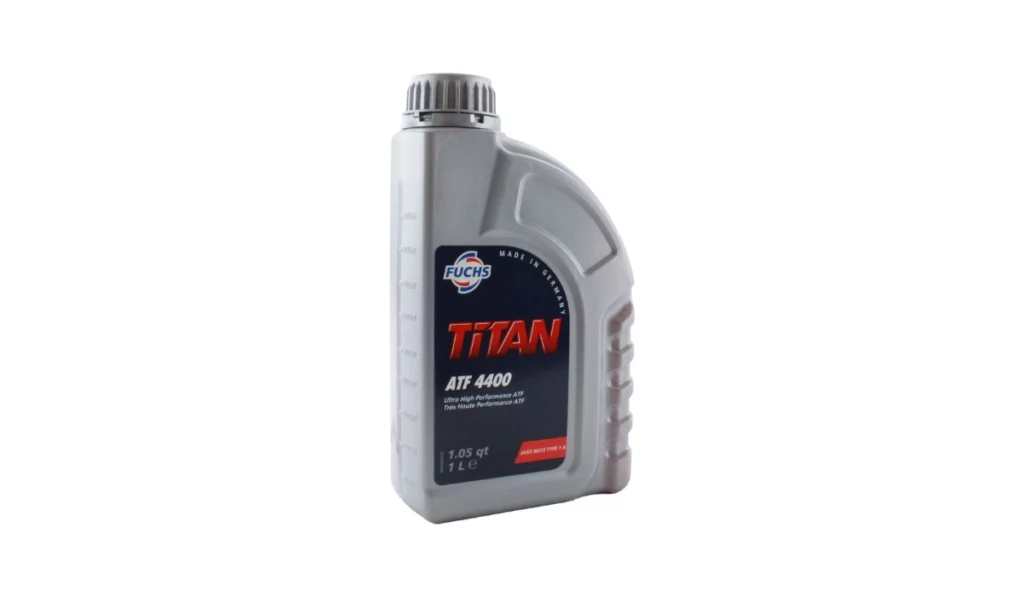
Scan for Error Codes
Use an OBD-II scanner to retrieve any diagnostic trouble codes (DTCs) stored in the vehicle’s onboard computer system. DTCs related to the transmission or engine-related codes can provide valuable insights into the nature of the problem.
Perform a Visual Inspection
Inspect the transmission and surrounding components for fluid leaks and visible damage. Check the transmission pan, seals, gaskets, fluid lines, housing, linkage, cooler lines, and electrical connectors. Look for puddles, wet spots on components, cracks, or loose connections under the vehicle. Address any leaks or damage promptly to ensure proper functioning.
Check Transmission Fluid
Check the transmission fluid level and condition. Low fluid levels or dirty, contaminated fluid can indicate potential issues with the transmission. The transmission fluid should be clean and translucent, with a reddish color. If the fluid appears dark or has a burnt smell, it may indicate overheating or internal damage.
Solutions and Repairs
We are now familiar with the steps to diagnose Toyota Camry transmission issues up until now. Next, in this section, we will look at the viable solutions. Addressing transmission issues quickly can prevent further damage and extend the lifespan of your vehicle. Here are some common solutions and repair options for transmission problems:
Transmission Fluid Change or Flush
One of the most effective solutions for minor transmission issues is to perform a transmission fluid change or flush. This involves draining the old, contaminated fluid and replacing it with fresh, clean fluid.
Depending on the Camry generation and model year, change transmission fluid every 60,000-100,000 miles. However, this interval can vary if your Camry has a CVT or manual transmission. For the exact interval, refer to your vehicle’s owner’s manual. We recommend changing the transmission fluid even earlier to maintain the integrity of the transmission system.
Software Updates
Modern vehicles, including the Toyota Camry, often rely on software to control transmission functions. Sometimes, a simple software update or reprogramming of the TCM can resolve transmission issues. However, it should be performed using the appropriate diagnostic tools.
Electrical Repairs
Consider repairing or replacing the affected components if there is an engine or transmission-related DTC and other electrical issues. This may involve rewiring, replacing sensors and actuators, or addressing issues with the vehicle’s engine control unit (ECU) and transmission control module (TCM).
Repair or Replacement of Valve Body
If the diagnostic process reveals faulty valve body is causing transmission problems, these components can often be repaired or replaced. The solenoids in the valve body control the flow of transmission fluid and are critical for proper gear shifting.
Replacing malfunctioning solenoids can restore normal transmission operation and resolve erratic shifting or failure to engage gears.
Transmission Overhauling or Replacement
A full transmission replacement may be necessary in cases where the transmission is beyond repair, or the cost of rebuilding is prohibitive. Alternatively, overhauling the transmission involves disassembling, inspecting, and repairing or replacing worn components.
While replacement is more expensive, it restores optimal performance and reliability. Overhauling can be cost-effective and sufficient for many issues.
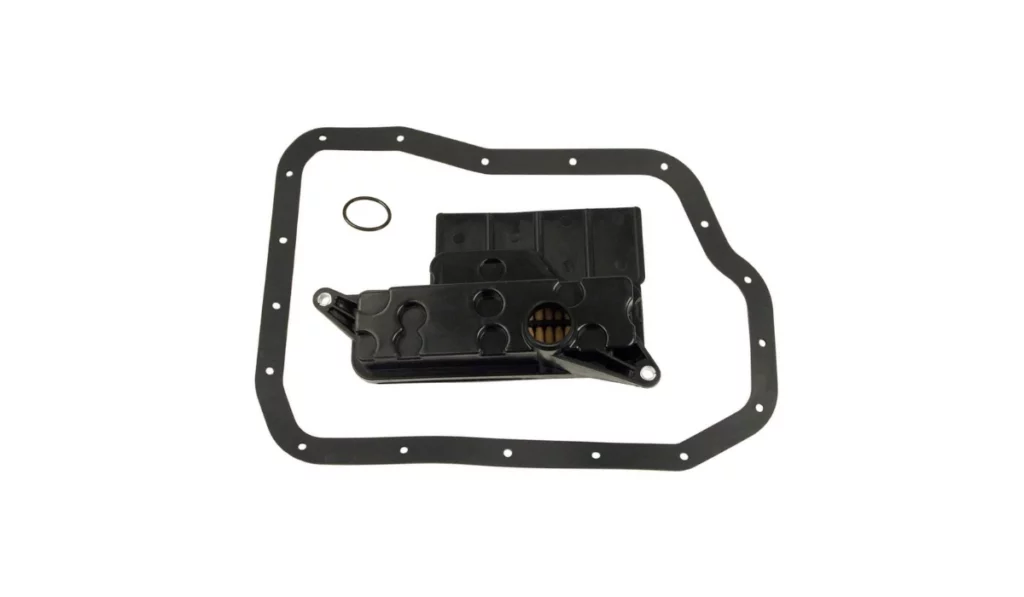
How much is a new transmission for a Camry?
The cost of a new transmission for a Toyota Camry can vary depending on several factors, including the model year, transmission type, and whether you purchase from the dealer or an aftermarket supplier. On average, a new transmission for a Camry can range from $3500 to $5000, excluding labor charges.
Preventative Maintenance
Maintaining your Toyota Camry’s transmission is crucial to ensure its longevity and performance. Here are some essential preventative maintenance tips for your Camry’s transmission:
Use Quality Parts
Always use the transmission fluid recommended by Toyota for your Camry model. The correct fluid specifications are in your owner’s manual. Additionally, some Camry models have a transmission filter that traps contaminants.
Regularly replacing the filter during fluid changes ensures the fluid remains clean and effective, preventing overheating and increased wear.
Monitoring Warning Signs
Stay alert to any warning signs indicating transmission problems, such as dashboard warning lights, unusual noises, or changes in driving performance. Early detection and prompt action can prevent minor issues from escalating into major repairs.
Address Minor Issues Promptly
Pay attention to any unusual noises, smells, or performance issues. Addressing minor problems such as slight shifting delays, small fluid leaks, or unusual vibrations early on can prevent them from developing into more significant and costly issues.
Gentle Driving Habits
Adopt driving habits to reduce strain on the transmission. Avoid aggressive acceleration and hard braking. Allow your vehicle to come to a complete stop before shifting from reverse to drive, and avoid overloading your vehicle beyond its recommended capacity.
Fix Your Toyota Camry Transmission Issues With Newparts.com
When maintaining the transmission system of your Toyota Camry, choosing the right components is crucial for ensuring optimal performance and longevity. At Newparts.com, we understand this importance and offer a comprehensive range of genuine Toyota and OEM transmission parts engineered specifically for your Camry model.
Our Camry-specific transmission components meet Toyota’s stringent quality standards, guaranteeing exceptional performance and smooth shifting. Whether addressing wear and tear or undertaking a complete transmission overhaul, trust our products as they provide reliable power delivery and seamless gear transitions.
But our commitment doesn’t stop there. We carry a huge selection of other transmission components, including clutch packs, solenoids, and seals, providing everything you need for a comprehensive transmission repair or rebuild.
Visit Newparts.com today and explore our extensive selection of Camry-specific transmission components. Our top priority is providing the parts and components you need to maintain your Toyota Camry’s performance and reliability for years.


